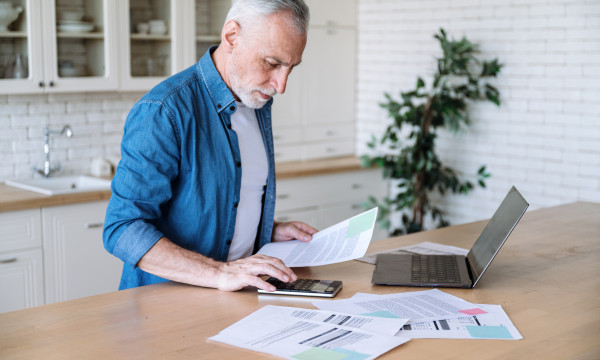Six smart ways to use your tax refund

It’s that time again: Spring is crawling ever closer, and Tax Day is just around the corner. If you’re expecting a tax refund or you’ve already received one, we think it’s wise to consider using it to strengthen your personal balance sheet rather than spending it. Need a little inspiration? Here are six smart uses for your refund.
1) Pay down credit card balances and other high-interest debt.
The average U.S. household with debt has more than $16,000 in credit card balances with an average Annual Percentage Rate (APR) higher than 15.00%. If you’re currently only making the minimum payments on a $16,000 balance, making a one-time $3,000 payment would save more than $3,000 in interest and shave off well over a year from the payoff date. Using your refund to pay off or pay down credit card debt is like earning 15.00% on an investment (depending on your APR). That is an incredibly valuable use of your money!
2) Start or rebuild your emergency fund.
If you don’t have any credit card debt, the next best option is assessing your savings. Nothing can derail your financial plans more than having inadequate cash reserves when you need them. Those who are unprepared for an unexpected job loss or expenses are then forced to borrow at high interest rates or liquidate other investment assets at inappropriate times. Sadly, 25% of Americans have no money saved for emergencies, according to Bankrate.com. Your goal should be to have at least 3-6 months of expenses saved in your emergency fund, and this money should be easily accessible in a money market or savings account. An emergency fund is a vital piece to your financial security and is definitely a smart use of your tax refund.
3) Use it for a down payment on a home.
A down payment on a mortgage can be a significant obstacle to overcome when buying a home. If you receive a tax refund and you’re in the market for a new home, this is a great opportunity to get prequalified (if you haven’t done so already) and earmark those funds for your down payment. Depending on the price of the home and loan program you choose, it’s possible that a tax refund could even make up the entire down payment.
4) Make an extra principal or interest payment on your mortgage.
If you’re not in the market for a new home, paying off your existing home early is another way to save money in the future. Paying off your mortgage may seem far away — 15 or even 30 years. However, did you know that simply making one extra principal and interest payment each year will take years off the life of your mortgage and save you a substantial amount of interest? For example, if you have a $150,000 loan at 3.50% for 30 years, your principal and interest payment will be around $674. If you pay an additional $674 once a year each year, you’ll pay off your mortgage in about 26 years rather than 30 — and save nearly $13,000 in interest! Or, if you just pay an extra $100/month for a total of $1,200 per year for the life of your mortgage, it will be paid off in under 24 years and you’ll save over $20,000 in interest.
5) Boost your retirement savings.
If you don’t have substantial credit card debt and you have an emergency fund, you’re doing well! A Roth individual retirement account (IRA) allows you to put money away that will grow to be tax-free after age 59 ½ (as long as the account has been open for five or more years). If you contributed $3,000 today and continue to invest* your $3,000 tax return each year, assuming the account earns 7% annually, your IRA will be worth more than $140,000 tax-free in 20 years. One great benefit is that in the meantime, your contributions are still accessible. If you need to withdraw them early, you can do so without paying a penalty. The earnings may be subject to taxes and penalties if withdrawn before attaining age 59 ½ (exceptions include when the earnings are used for education expenses or a first-time home purchase).
6) Put it to work for you.
Depending on current interest rates, putting your money into a certificate of deposit (CD) might be a good option for you. Terms typically range from three months to 60 months or more, so you can choose the length of time — and corresponding rate — that suits you best. Check out our current CD rates.
Need more ideas? Talk to one of our bankers, who will be happy to help you examine your options. If you want more education on taxes, check out our Tax Resource Page. And as always, when it comes to taxes, we recommend consulting with a tax professional about your unique situation.
|
Learning Center articles, guides, blogs, podcasts, and videos are for informational purposes only and are not an advertisement for a product or service. The accuracy and completeness is not guaranteed and does not constitute legal or tax advice. Please consult with your own tax, legal, and financial advisors.




